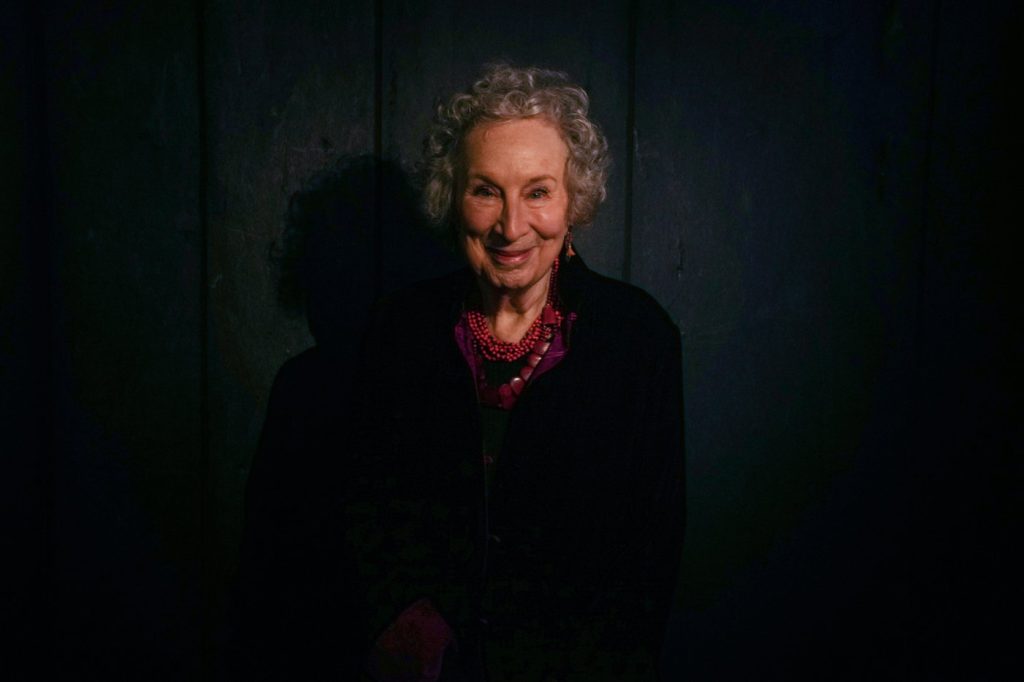EDMONTON – Renowned author Margaret Atwood has responded to Alberta's controversial ban on school library books containing sexual content by penning a satirical short story. This move comes in light of Atwood's celebrated novel "The Handmaid's Tale," which has been removed from some school shelves in Alberta following the province's new regulations banning certain books.
In a social media post on a recent Sunday, Atwood announced that since her literary classic is now deemed unsuitable for schools in Alberta, she has crafted a short story aimed at 17-year-olds. The narrative features two “very, very good children” named John and Mary, who Atwood describes in a humorous manner, stating, “They never picked their noses or had bowel movements or zits.” The story continues with the duo growing up, marrying each other, and producing five perfect children without ever engaging in sexual relations.
Atwood further satirizes societal norms through her characters, emphasizing their focus on “selfish rapacious capitalism” instead of paying attention to poverty or the concept of forgiveness. As the story unfolds, she light-heartedly remarks that John and Mary never succumb to death, encapsulating an idyllic existence with the sentiment of “who wants to dwell” on bleak realities. Ultimately, their lives culminate in a fabricated happy ending, although the narrative hints at the grim implications of their discontent with the external world.
Atwood's story cleverly parallels the state of Alberta under Premier Danielle Smith, drawing a connection between the dystopian themes of "The Handmaid's Tale" and the recent political climate. In her narrative’s conclusion, she notes that while John and Mary were engrossed in their perfect yet unrealistic lives, “The Handmaid’s Tale” manifested into reality, leading Smith into a predicament where she finds herself “with a nice new blue dress but no job.” This reference alludes to the high-ranking wives in Atwood’s book, who wear blue while handmaids, dressed in red, bear children for elite couples within a totalitarian regime.
The backdrop of Atwood's creative response coincides with the Edmonton Public School Board's recent announcement regarding the removal of over 200 books from schools. This decision aligns with a directive from Alberta’s education ministry issued in July, mandating that schools eliminate books featuring “explicit sexual content” by October 1. The initial list provided by the board revealed an array of significant titles, including Maya Angelou’s "I Know Why the Caged Bird Sings," Aldous Huxley’s "Brave New World," alongside works from notable authors like Alice Munro and Ayn Rand.
In her defense of the book removals, Premier Smith claimed that the Edmonton Public School Board had excessive compliance with the ban, describing their actions as a form of “vicious compliance.” During a recent news conference, she showcased excerpts from graphic novels that had stirred controversy due to their explicit illustrations, emphasizing the rationale behind the newly imposed regulations.
Alberta's education ministry is considering establishing a working group to collaborate with school boards to assess book contents and determine their appropriateness in the educational context. Julie Kusiek, chair of the Edmonton Public School Board, maintained that the lists compiled met governmental standards and directed any discontented parties to reach out to Alberta Education Minister Demetrios Nicolaides. Additional school divisions are expected to release similar lists in the ensuing days as compliance with the ban continues to take shape.
Neither Atwood, Smith, nor Alberta's education ministry provided immediate comments on the short story penned by Atwood as discussions on book content and censorship continue in the province.












